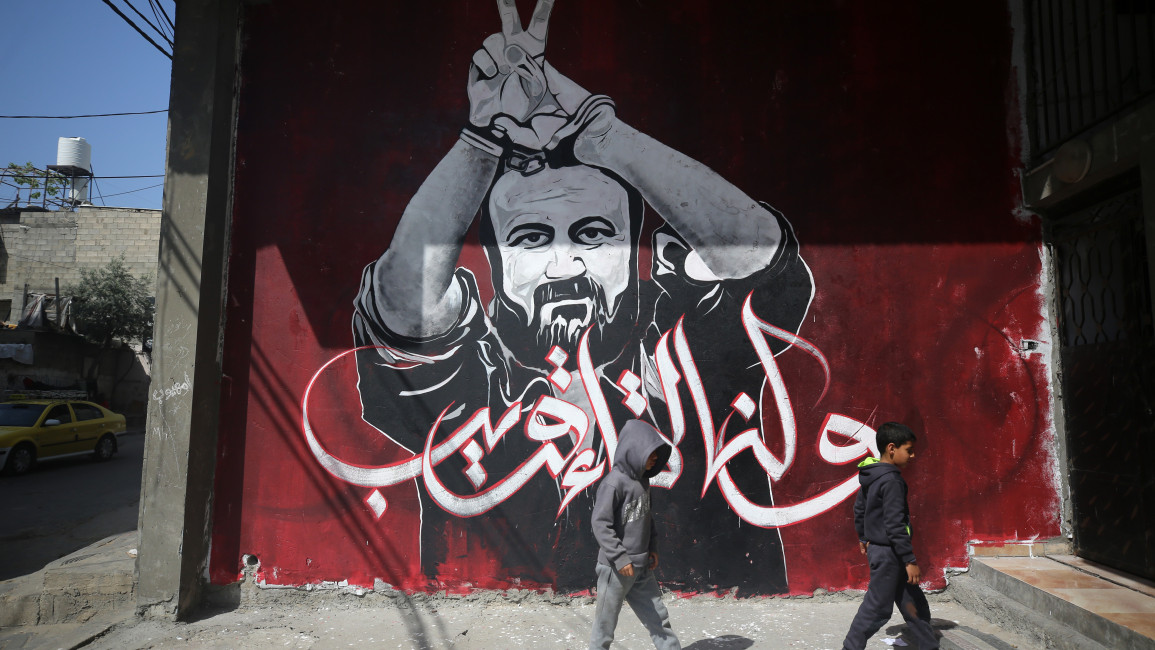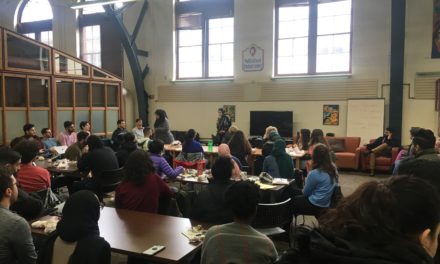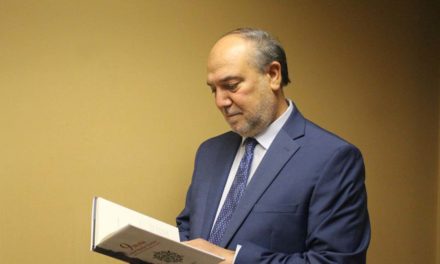Whenever Hamas and Israel negotiate on prisoner exchanges, the name of Marwan Barghouti, a prominent Fatah leader labelled Palestine’s Nelson Mandela, is at the top of the list.
In 2011, his name was put forward to be part of an exchange deal that saw over 1,000 Palestinians freed for Israeli soldier Gilad Shalit, but Israel refused to release him.
It was in this deal that now Hamas leader in Gaza Yahya Sinwar was released from an Israeli jail.
In current ceasefire negotiations, Hamas has once again demanded Barghouti’s release, highlighting just how important he still is in Palestinian politics despite over two decades of imprisonment.
Iconic figure
Barghouti, a former leader of Fatah’s militant faction Tanzim, was arrested in 2002 and sentenced to five life sentences. The Fatah leader has always maintained that his trial was illegitimate.
Despite his imprisonment, he has maintained an active role in Palestinian politics and has become a national icon for Palestinians. He is consistently the frontrunner to succeed Mahmoud Abbas as president of the Palestinian Authority (PA), according to polls.
A symbol of Palestinian resistance against Israel’s occupation, his decades-long imprisonment has enhanced his legitimacy among Palestinians, especially the young, and sharply contrasts with Abbas and the PA, who are viewed as corrupt and detached.
Beyond how his release could impact ceasefire talks in Gaza, Barghouti is also viewed as a unifying figure who could take on a vital future role in Palestinian politics.
Palestinian analyst Ismat Mansour, who spent 20 years in Israeli prisons between 1993 and 2013, told The New Arab that freeing Barghouti would boost Hamas’ public image among Palestinians.
“Barghouti symbolises the Palestinian struggle against occupation, making it crucial for Hamas to free him for their popularity and credibility, as his imprisonment elevated him to an iconic figure, perceived as close to the people, and his suffering in prison makes him a leadership model for the Palestinians,” he said.
Tahani Mustafa, a senior Palestine analyst at the International Crisis Group (ICG), told TNA that while Barghouti isn’t a ‘political animal’ and therefore isn’t seen by Palestinian factions as a threat due to his lack of serious political ambitions, he nevertheless serves as a unifying candidate for different factions.
“While it’s uncertain if his release could be a key or a deal-breaker in the ongoing Israel-Hamas negotiations for a ceasefire, Barghouti’s potential release could be a game-changer for the Palestinians,” she said.
“He has always been on Hamas’ exchange list when negotiating prisoners or hostages. All Palestinian factions agree that he would be the unifying candidate. However, it’s difficult to predict if the Israelis would release him.”

Barghouti symbolises the Palestinian struggle against Israeli occupation. [Getty]
A symbol for Palestinians
Khalil Shikaki, professor of political science and director of the Palestinian Center for Policy and Survey Research, told TNA that it would be challenging for Barghouti to be freed.
While the former Israeli Prime Minister Ehud Olmert publicly agreed to Barghouti’s release during negotiations with Hamas in 2008, Netanyahu refused to release him in 2011 during negotiations for the release of Israeli soldier Gilad Shalit.
“Israel believes that if they release Barghouti, he will unify Palestinians. And, of course, Netanyahu doesn’t want that, also because Barghouti is seen as someone with ‘blood on his hands,’ and there is a strong rejection of releasing people like him,” Shikaki said.
“Barghouti may facilitate reconciliation between Fatah and Hamas and unify the West Bank and Gaza. Hamas believes Barghouti is a unifier, unlike Abbas, who is perceived as a divider”
“Therefore, Israel will find it very difficult to release him in the current negotiations. Israel might eventually have no choice but to do so, but there will be a lot of resistance to that in Israel, particularly from Netanyahu.”
The possible release of Barghouti is also being linked to the future of Palestine and Palestinians the ‘day after’ the war in Gaza, with the leader having endorsed a two-state solution.
In this sense, Barghouti represents a political asset for all Palestinian factions, Hamas included.
Unifying Palestinian factions
Hamas and Fatah operate very differently as political factions in terms of strategy. While Fatah has specific aspirations and compromised interests, Hamas primarily identifies as a resistance movement with a clear political goal of national liberation.
But both parties acknowledge the necessity of cooperation with others to achieve their goals, preferring collaboration rather than exclusively dominating. In this context, Barghouti could bridge the gaps between different factions.
“All the different Palestinian factions can disagree on many different things. But if there’s one thing they all unite on, it is the resistance and the right to national liberation,” Mustafa from the ICG said.
Shikaki explained that Barghouti’s potential return to Palestinian political life could shake up Fatah as a political party. While Abbas’ private reaction remains unknown, he will publicly support Barghouti.

Barghouti is viewed as a unifying figure who could take on a vital future role in Palestinian politics. [Getty]
“There is no doubt that, publicly, Abbas will be strongly in favour and supportive of Barghouti’s release. Barghouti is a senior member of the Fatah leadership and a member of the Central Committee of Fatah, and he is very popular. Abbas will have no choice but to express the strongest support for his release,” he said.
For Israel, however, a change within Fatah with Barghouti as a political leader might pose challenges in the occupied West Bank, as his release could result in reduced cooperation between Fatah and Israel, upending the status quo.
However, this depends on the political context. If conditions for Palestinians remain the same, Barghouthi, should he assume the presidency or leadership of Fatah, would probably adopt a significantly firmer stance towards Israel across all fronts, including cooperation on security and civil matters, in contrast to Abbas.
“Israel believes that if they release Barghouti, he will unify Palestinians. And, of course, Netanyahu doesn’t want that”
Shikaki noted that from Hamas’ perspective, Barghouti is closer to them than any other Fatah leader in terms of welcoming the reintegration of Hamas into the political process.
“Barghouti may facilitate reconciliation between Fatah and Hamas and unify the West Bank and Gaza. Hamas believes Barghouti is a unifier, unlike Abbas, who is perceived as a divider,” he said.
Barghouti and Sinwar were also inmates together in Israeli jails, making it more likely he could work with Hamas.
“If Barghouti is freed, the separation between Fatah and Hamas will end. He will bring his popularity and credibility among the Palestinian people. He will bring other leaders from the prisoners, ex-prisoners, and the youngest people from Fatah. All these people who are now corrupt and unpopular in the Palestinian streets will be removed from Palestinian politics, and this will be good for us,” Mansour said.
However, Mustafa is much more cautious about what Barghouti would be able to do if released.
“It’s uncertain. Prison for a very long time can change people and the terms of his release and the political dynamics surrounding him matter. He might emerge as a significant figure, altering Palestinian leadership, or he could legitimise and maintain the status quo,” she said.
“It could go either way. His freedom could fuel armed resistance or be co-opted by certain factions within Fatah. It’s hard to predict; it could swing in any direction.”
Dario Sabaghi is a freelance journalist interested in human rights.
Follow him on Twitter: @DarioSabaghi














